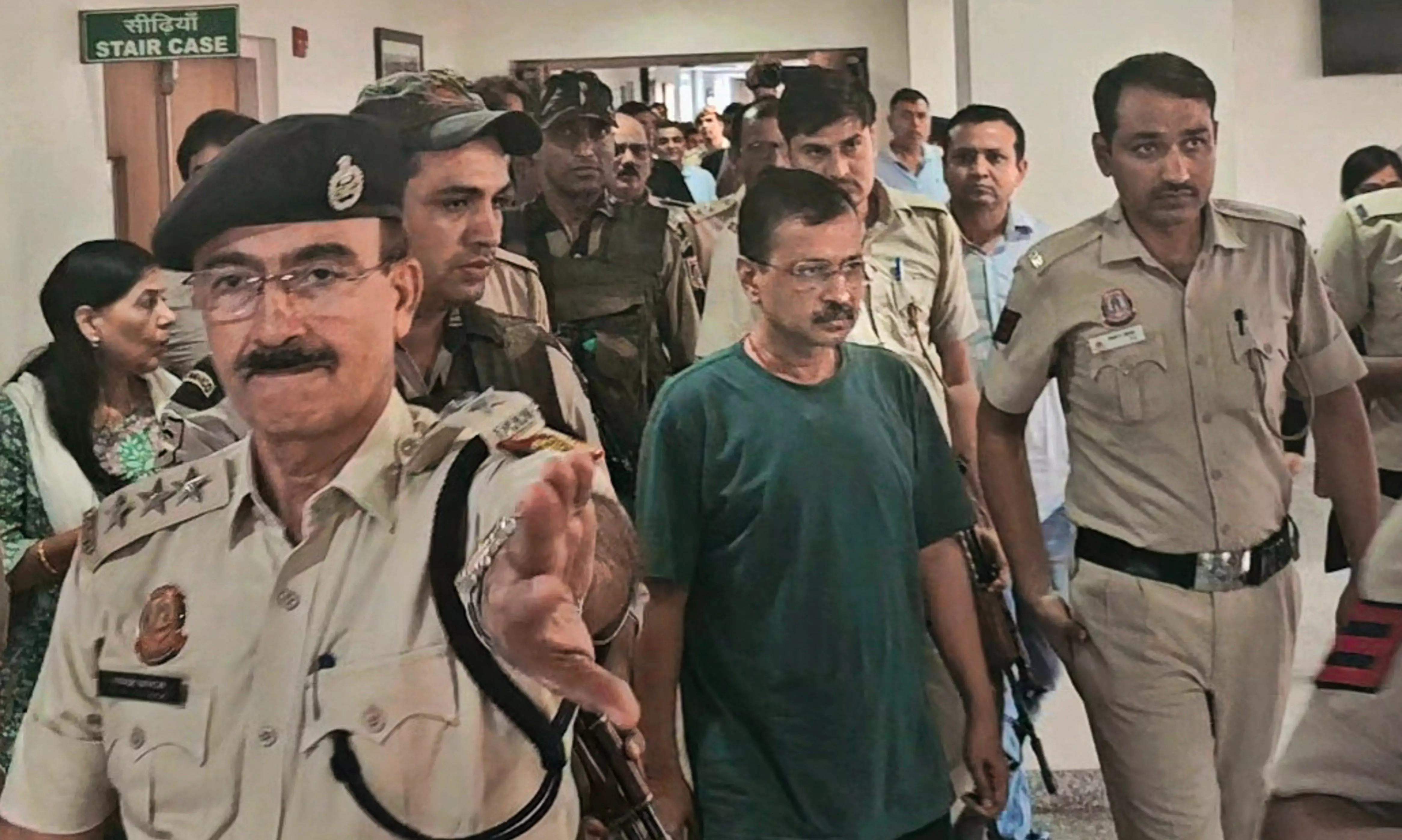
Excise 'scam': Delhi HC grants liberty to Kejriwal to move trial court for bail
In a separate judgment, the high court also dismissed Kejriwal’s plea challenging his arrest by the CBI in the case

New Delhi, Aug 5 (PTI) The Delhi High Court on Monday granted liberty to Chief Minister Arvind Kejriwal to approach a trial court with his plea seeking bail in the CBI corruption case stemming from the alleged excise policy scam, noting the change in circumstances of the case.
The high court noted that when Kejriwal had filed the bail plea before it, the charge sheet was not filed in the trial court in the case.
However, now the CBI has filed its charge sheet before the special judge and it would be in the benefit of the AAP leader to first approach the trial court for his bail, the court said.
In a separate judgment, the high court also dismissed Kejriwal’s plea challenging his arrest by the CBI in the case. The high court had on July 17 reserved its order on his plea challenging his arrest by the CBI.
Hearing the bail plea, Justice Neena Bansal Krishna said though there is no quarrel about the proposition that the district courts and the high court have concurrent jurisdiction but at the same time it has been held time and again by the Supreme Court that the party must first approach the court of first instance.
“In the present case, it is more in the benefit of the petitioner (Kejriwal), considering the complexity and the web of the facts and the material on record, to comprehensively determine the role of the petitioner in this alleged conspiracy to determine if he is entitled to bail.
“It may also be noted that when the bail application was filed before this court, the charge sheet had not been filed. However, in the changed circumstances, when the charge sheet has already been filed before the special judge, it would be in the benefit of the petitioner to first approach the court of sessions judge,” the high court said.
It disposed of the bail plea with the liberty to Kejriwal to approach the special judge for the relief.
The high court had reserved the order on Kejriwal's bail plea on July 29 after hearing the arguments of the counsel for the AAP leader and the central agency.
The CBI prosecutor had submitted that the charge sheet has been filed in the trial court on July 29 and the proprietary demands that the bail plea be first considered by the special judge.
He had submitted that there were voluminous records not only pertaining to the petitioner but to the other co-accused in this conspiracy and it may not be possible to bring forth the entire circumstances in this bail plea in the first instance before the high court as the records are available with the trial court.
While opposing the bail plea, the CBI had said Kejriwal was the “sutradhaar” of the excise scam and there was evidence to show his involvement in the offence.
Kejriwal’s counsel had contended that the CBI’s arrest was an “insurance arrest” to ensure that he does not come out of jail. He had emphasised that there was no direct evidence against the AAP chief and the investigating agency apprehended him based on presumptions and hypothesis.
The CM's counsel had opposed the CBI’s submission to go to the trial court and submitted that the law recognises concurrent jurisdiction of the trial court and the high court to consider the bail plea.
He had said there was nothing which prevented the high court from hearing the bail plea in the first instance and Kejriwal was willing to forego his first step of the ladder and suffer the consequences of missing out the option of filing the plea before the trial court.
Kejriwal was arrested by the CBI on June 26 from Tihar Jail, where he was lodged in judicial custody in a connected money laundering case filed by the Enforcement Directorate (ED).
The chief minister, who was arrested by the ED on March 21, was granted bail by the trial court in the money laundering case on June 20. However, the trial court's order was stayed by the high court.
On July 12, the Supreme Court granted him interim bail in the money laundering case.
The excise policy was scrapped in 2022 after the Delhi lieutenant governor ordered a CBI probe into alleged irregularities and corruption involving the formulation and execution of the excise policy.
According to the CBI and the ED, irregularities were committed while modifying the excise policy and undue favours extended to licence holders. PTI

